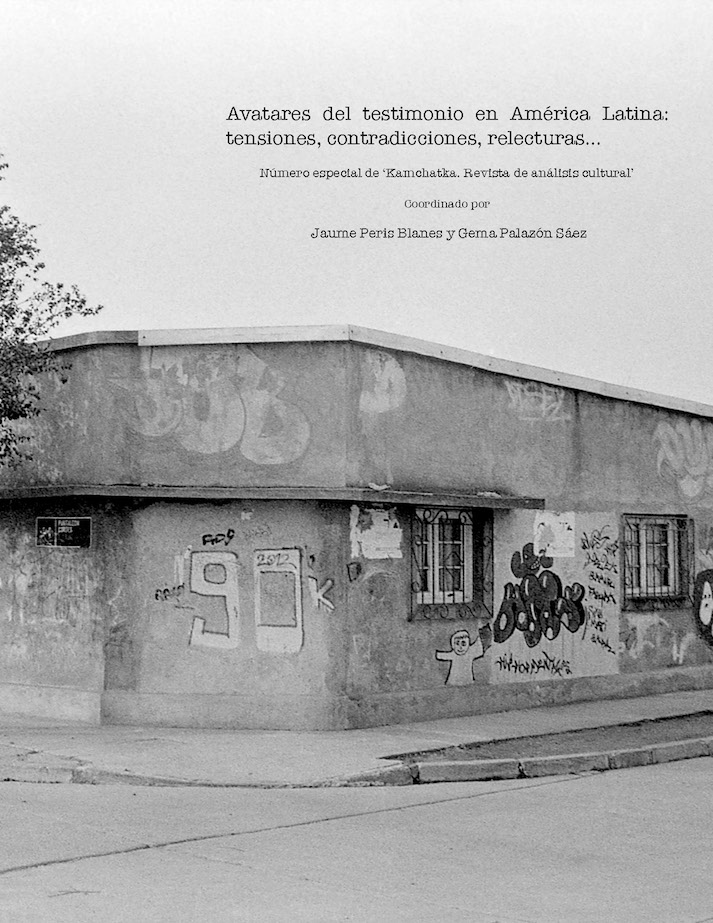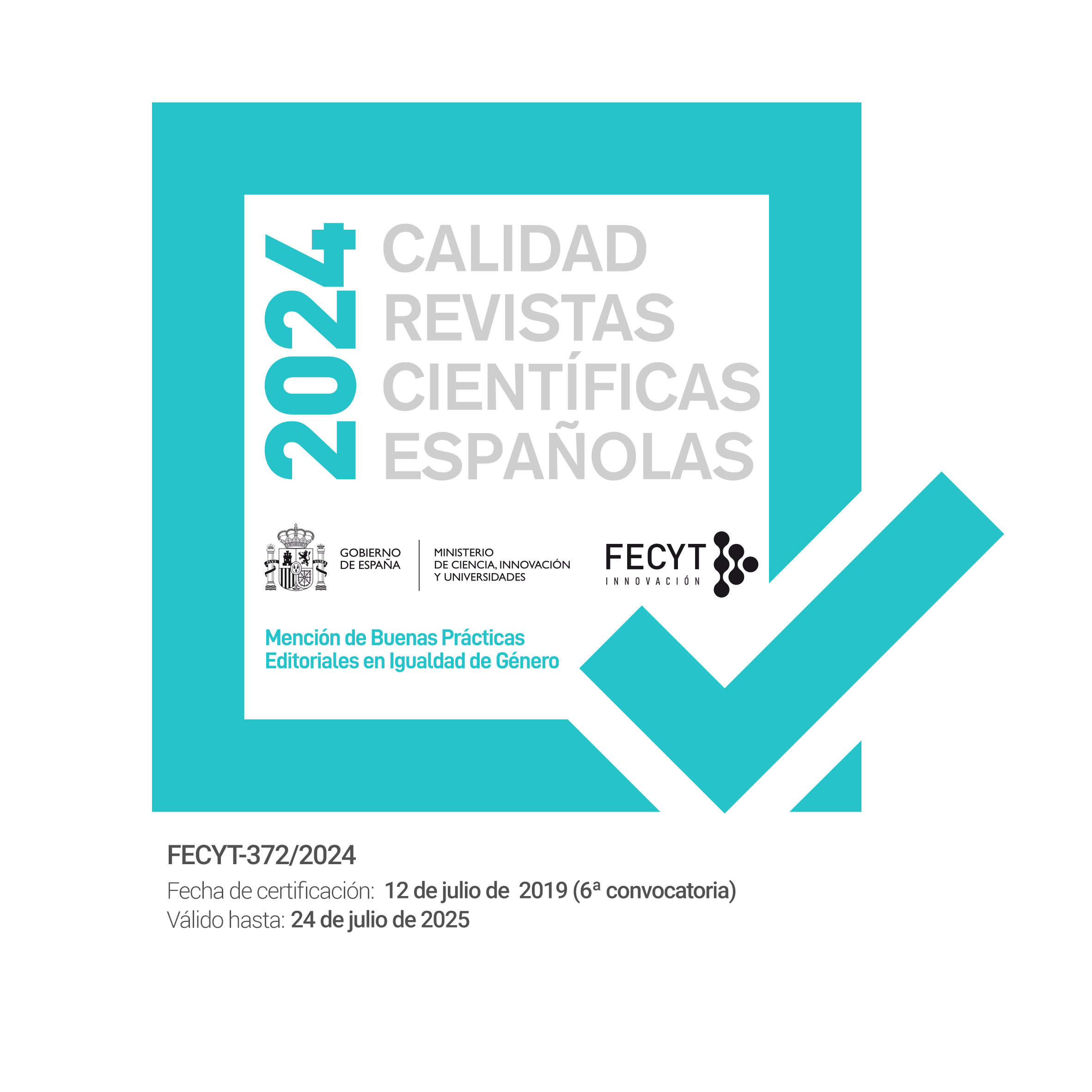Autoría, autoridad y verdad. Apuntes para una nueva lectura 'en frío' de la polémica Menchú-Stoll
DOI:
https://doi.org/10.7203/KAM.6.7062Palabras clave:
testimonio, revolución, literatura testimonial, Rigoberta Menchú Resumen
Resumen
Este artículo versa sobre las condiciones que afectan la recepción de los textos que han sido ubicados bajo la rúbrica genérica testimonio en relación a la construcción de su autoría y de su condición de “verdad”. El análisis se concreta a partir de los procesos de interpretación que afectan un caso polémico, el de la recepción del testimonio mediado por Elizabeth Burgos,Me llamo Rigoberta Menchú y así me nació la conciencia (1983) una vez su referencialidad fue puesta en cuestión por el antropólogo David Stoll en el libro Rigoberta Menchú and the Story of All Poor Guatemalans (1999). Se parte de la hipótesis que toda posición de autor depende de elementos pragmáticos condicionados tanto por la filiación genérica o disciplinaria del texto en cuestión como por el lugar––social, político, simbólico–– que ocupa quien firma la obra en un determinado entorno.
Palabras clave: testimonio, autoridad etnográfica, voces subalterna y autoría plural,
This paper deals with the factors that affect the reception of those texts linked to the genre testimonio, in relation to the construction of their authorship and truth. It analyzes the interpretation processes that affect a controversial case: the reception of the work of Elizabeth Burgos, Me llamo Rigoberta Menchú y así me nació la conciencia (1983), once its documentary value was questioned by the anthropologist David Stoll in his book Rigoberta Menchú and the Story of All Poor Guatemalans (1999). The testimonio is an interesting genre where to show how the “author” function depends on pragmatic factors conditioned by the generic ordisciplinary affiliation of the text, as well as by the social, political or symbolical place occupied by the person(s) who sign(s) the book.
Key words :testimonial writing, etnographic authority, subaltern voices and plural authors
 Descargas
Descargas
 Citas
Citas
Bibliografía Arias, Arturo (1996). “From Peasant to National Symbol”. Carey-Webb, Allen; Benz, Stephen (eds.). Teaching and Testimony. Rigoberta Menchú and the North American Classroom. New York: SunyPress: 29-47. Arias, Arturo. “After the Rigoberta Menchú Controversy: Lesson Learned About the Nature of Subalternity and the Specifics of the Indigenous Subject”. Modern Language Notes, 117, 2 (2002): 481-505. Barnet, Miguel (1998[1981]). La fuente viva. La Habana: Editorial Letras Cubanas. Beverley, John (1998). “Siete aproximaciones al ‘problema indígena’”. Moraña, Mabel (ed.) Indigenismo hacia el fin del milenio. Pittsburgh: Instituto Internacional de Literatura Iberoamericana, 269-283. Benz, Stephen (1996). “Culture Shock and I, Rigoberta Menchú ”, Carey-Webb, Allen & Benz, Steven (eds.). Teaching and Testimony. Rigoberta Menchú and the North American Classroom. New York: Suny Press: 19-28. Beverley, John (1999). Subalternity and Representation. Arguments in Cultural Theory . Durham and London: Duke University Press. Binford, Leigh. “Empowered Speech: Social Fields, Testimonio and the Stoll-Menchú Debate”. Identities 8, 1(2001): 105-133. Burgos, Elisabeth. “Guatemala: voyage au bout de l’horreur”. Le Nouvel Observateur , 24 de abril (1982): 130-146. Burgos, Elizabeth (1998[1983]). Me llamo Rigoberta Menchú y así me nació la conciencia. Barcelona: Seix Barral. Burgos, Elizabeth. “The Story of a Testimonio”.Latin American Perspectives 26, 6 (1999a): 53-63. Burgos, Elizabeth. “Poner voz a una conciencia”. Lateral 52 (1999b):19-20. Canby, Peter. “La verdad acerca de Rigoberta Menchú” .The New York Times Review of Books XLVI, 6 (1999). Carey-Webb, Allen & Benz, Steven (eds.) (1996). Teaching and Testimony. Rigoberta Menchú and the North American Classroom. New York: Suny Press Carr, Robert. “Re-presentado el testimonio. Notas sobre el cruce divisorio primer mundo/tercer mundo”. Revista de crítica literaria latinoamericana 36 (1992): 73-94. Dröscher, Barbara.“El testimonio y los intelectuales en el triángulo atlántico”. Istmo. Revista virtual de estudios de literatura y cultura centroamericana 2 (2001) D’Souza, Dinesh (1991). Illiberal Education. The Politics of Race and Sex on Campus. New York: The Free Press. Fischer, Edward D. (2001). “Derechos humanos y relativismo cultural. La ética antropológica en el área maya”. Pitarch, Pedro y López, Julián (coord.). Los derechos humanos en tierras mayas. Madrid: Sociedad Española de Estudios Mayas, 291-310. Gilmore, Leigh (2001). The Limits of Autobiography. Trauma and Testimony. Ithaca and London: Cornell University Press. Gugelberger, Georg M. “Introduction”, al monográfico: “Voice of the Voiceless. Testimonial Literature in Latin America”. Latin American Perspectives 91 (1991): 3-9. Gugelberger, Georg M. “Stollwerk or Bulwark? David Meets Goliath and the Continuation of the Testimonio Debate”. Latin American Perspectives 26, 6 (1999): 47-52. Menchú, Rigoberta. “Los que me atacan humillan a las víctimas”. El País, 24 de enero (1999): 6 y 7. Ochando, Carmen (1998). La memoria en el espejo. Aproximación a la escritura testimonial. Barcelona: Anthropos. Picornell, Mercè (2003). Política i poètica de l’etnoficció. Escriptura testimonial y representació de la veu subalterna.Tesis doctoral inédita presentada el 29 de septiembre del 2003 en la Universidad Autónoma de Barcelona. Picornell, Mercè.“Gestores de la voz ajena. El intelectual como mediador en la escritura testimonial”. Brújula. Revista interdisciplinaria sobre estudios latinoamericanos 1, 1 (2002): 37-53. Rus, Jan. “Introduction”, al monográfico: “If Truth Be Told. A Forum on Stoll and Menchú”. Latin American Perspectives 26, 6 (1999): 5-14. Sanford, Victoria. “Between Rigoberta Menchú and La Violencia: Deconstructing David Stoll’s History of Guatemala”. Latin American Perspectives 26, 6 (1999): 38-46. Sklodowska, Elzbieta (1992). Testimonio hispanoamericano. Historia, teoría, poética. Nueva York: Peter Lang Sklodowska, Elzbieta. “Testimonio mediatizado:¿Ventriloquia o heteroglosia?”. Revista de crítica literaria latinoamericana 19, 38 (1993): 81-90. Smith, Carol A. “Why Write an Exposé of Rigoberta Menchú?”. Latin American Perspectives 26, 6 (1999): 15-28. Sommer, Doris (1988). “‘Not Just a Personal Story’: Women’s Testimonios and the Plural Self”. Brondzki, Bella y Schenck, Celeste (eds). Life/Lines. Theorizing Women’s Autobiographies. Ithaca: Cornell University Press, 107-130. Spivak, Gayatri Chakravorty (1988). “Can The Subaltern Speak?”, Cary Nelson & Lawrence Grossberg eds.Marxism and the Interpretation of Culture . London, Macmillan. Stoll, David (1999a). Rigoberta Menchú and the Story of All Poor Guatemalans. Boulder, Westview. Stoll, David. “Life Story as Mythopoesis”. Anthropology News 39, 4 (1998): 9-11. Stoll, David. “Rigoberta Menchú and the Last-Resort Paradigm”. Latin American Perspectives 26, 6 (1999b): 70-80. Stoll, David. “Los testimonios silenciados”. Lateral 52 (1999b): 32. Williams, Gareth (1996). “The Fantasies of Cultural Exchange in Latin American Subaltern Studies”.Gugelberger, Georg (ed.). The Real Thing. Testimonial Discourse in Latin America.Durham: Duke University Press, 254-26
Descargas
Publicado
Cómo citar
-
Resumen1015
-
Artículo525
Número
Sección
Licencia
Los textos publicados en esta revista están –si no se indica lo contrario– bajo una licencia Reconocimiento-NoComercial 4.0 de Creative Commons. Puede copiarlos, distribuirlos y comunicarlos públicamente siempre que cite su autor y el nombre de esta publicación, Kamchatka. Revista de análisis cultural y no los utilice para fines comerciales. La licencia completa se puede consultar en Creative Commons.
Aquellos autores/as que tengan publicaciones con esta revista, aceptan los términos siguientes:
- Los autores/as conservarán sus derechos de autor y garantizarán a la revista el derecho de primera publicación de su obra, el cuál estará simultáneamente sujeto a la Licencia de reconocimiento no comercial de Creative Commons que permite a terceros compartir la obra siempre que se indique su autor y su primera publicación esta revista.
- Los autores/as podrán adoptar otros acuerdos de licencia no exclusiva de distribución de la versión de la obra publicada (p. ej.: depositarla en un archivo telemático institucional o publicarla en un volumen monográfico) siempre que se indique la publicación inicial en esta revista.
- Se permite y recomienda a los autores/as difundir su obra a través de Internet (p. ej.: en archivos telemáticos institucionales o en su página web) antes y durante el proceso de envío, lo cual puede producir intercambios interesantes y aumentar las citas de la obra publicada.





